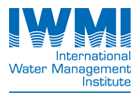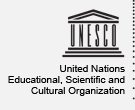Presentations
Hall, Maurice D.
Presentation Title
The Groundwater-Surface Water Connection in California: Balancing Agricultural, Municipal and Ecosystem Needs in Groundwater Management
Institution
The Nature Conservancy
Video
Not Available
Presentation
Profile Picture

Abstract
The Nature Conservancy has developed and implemented many innovative freshwater conservation strategies, including protecting the headwaters of streams and rivers, managing forests sustainably, facilitating environmentally beneficial regional water planning, purchasing lands and conservation easements, and acquiring surface water rights to provide environmental flows. Practically all the rivers and streams in California, and the freshwater ecosystems that depend upon them, rely on groundwater for a significant portion of their water. Therefore, our success in aquatic ecosystem conservation is closely tied to effective management of our water resources; groundwater and surface water. In addition, given the highly stressed and intensely managed water resource setting of California, successful management of groundwater to support aquatic ecosystems is closely tied to agricultural and urban water uses. In an effort to move toward more truly integrated water management for people and ecosystems, The Nature Conservancy?s California Water Program is evaluating the connection of groundwater and surface water at our conservation sites around the state. With improved understanding of the groundwater/surface water/ecosystem relationships, we are establishing groundwater management objectives that meet the needs of ecosystems and developing integrated water management strategies that provide multiple benefits for existing water users and for the environment. This presentation will highlight how historic and current groundwater management has affected aquatic ecosystems at some of the Conservancy?s iconic conservation sites in California. In some cases, the ecosystem damage from poor groundwater management is severe and advanced, and recovery will be difficult and expensive. Other systems still have reasonably functional groundwater systems, and with fairly straightforward and painless precautions, the integrated groundwater / surface water relationships can be protected and maintained with very potent outcomes for conservation and sustainable water supplies for cities and farms. We will present examples of integrated water management strategies we are evaluating that blend environmental, agricultural and municipal water resource objectives. Collectively, our investigations highlight some important weaknesses in current groundwater management institutions and policies and suggest what changes must occur if further degradation of aquatic ecosystems is to be curtailed.
Figures
None Available
|












